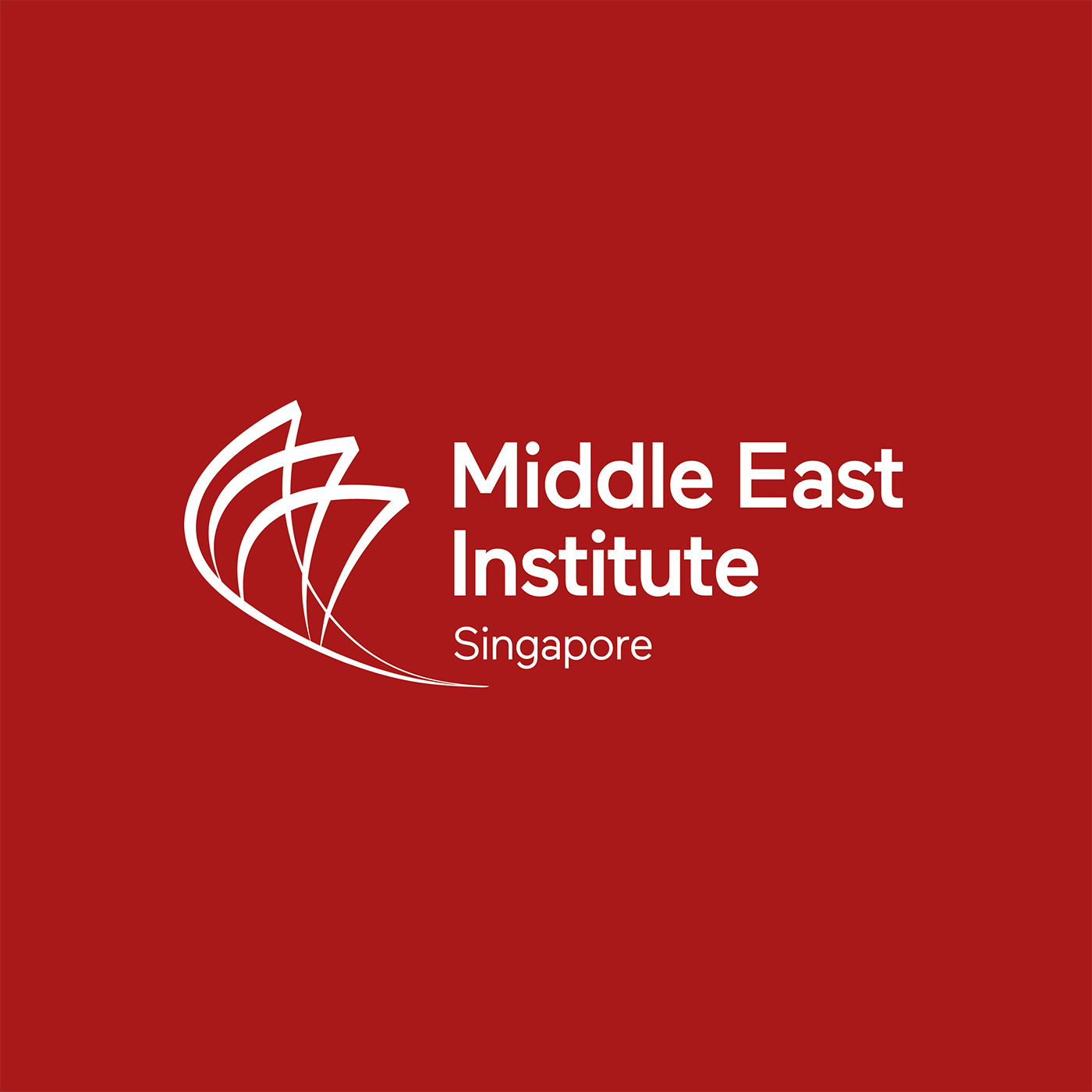Episodes
![Bridging The Gulf [Episode 10]: MEI Salon Cultural Segment II – A City as Old as Time: Nizwa, Oman](https://pbcdn1.podbean.com/imglogo/ep-logo/pbblog4563756/BTG_19Aug_Title_300x300.png)
Wednesday Aug 25, 2021
Wednesday Aug 25, 2021
Did you know that Nizwa was the former capital of Oman, well before Muscat? An ancient city in the interior, Nizwa sits on a plain characterised by seasonal rivers and palm plantations. The city’s Falaj Daris, Oman’s largest water source and a UNESCO site, is situated at the crossroads of age-old trade routes. Known as The Pearl of Islam, Nizwa served as the capital of Oman under the Julanda dynasty in the sixth and seventh centuries. Around a millennium later, in 1668, the Nizwa fort became the administrative seat of authority for presiding Imams. The adjoining marketplace, Nizwa Souq, is never shy of handicrafts and silversmiths. Come join us in a discovery of Nizwa, with fascinating insights by Oman’s Ministry of Tourism.
Speaker: Ms Asma Salim Hamoud Al Hajry, Oman’s Ministry of Tourism
Ms Asma Salim Hamoud Al Hajry is the Deputy Director-General of Tourism, Marketing and Promotion at Oman’s Ministry of Tourism. Besides supervising the sultanate’s relations with international markets ranging from European offices to those in Australia and New Zealand, Ms Al Hajry is tasked with reviewing budgetary and media plans in line with Oman’s Vision 2040. She received her MSc in marketing for places and tourism from the University of Leicester and her BA in business studies from Stirling University.
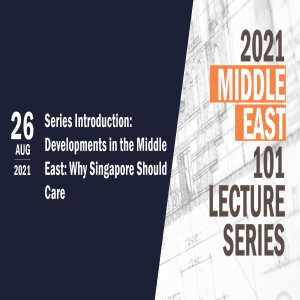
Friday Aug 27, 2021
Friday Aug 27, 2021
Throughout history, the Middle East has been locked in engagements with the West through crusades, wars, colonialism and terrorism. However, beyond the clichés and convenient facades lie many lesser known facets from economic transformation to climate change. This series of lectures will give you a more comprehensive overview of the region and its inevitable impacts on Singapore and the rest of globe.
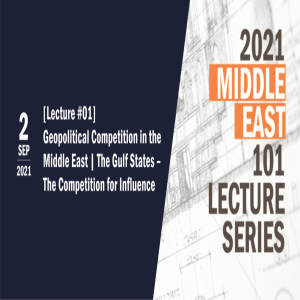
Friday Sep 03, 2021
Friday Sep 03, 2021
ME 101 Lecture #01: Geopolitical Competition in the Middle East | The Gulf States – The Competition for Influence
by Dr Clemens Chay [Thursday, 2 September 2021]
For more information about the ME 101 series, click here: https://mei.nus.edu.sg/event/me-101-lecture-series-2021/
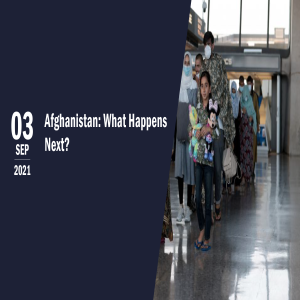
Monday Sep 06, 2021
Afghanistan: What Happens Next?
Monday Sep 06, 2021
Monday Sep 06, 2021
The past two weeks have seen the Taliban return to power more rapidly than the regime’s fall nearly 20 years ago. Many observers of Afghanistan feared that the nation’s fragile democracy would not last long beyond the withdrawal of American troops but very few predicted that this transition would happen over a matter of days rather than months or years. The unexpected nature of this transition should prompt humility in any analyst but the questions raised are all the more important.
In evaluating the past:
- Was this outcome inevitable or could the government have survived with different decisions by the international community?
- On paper, the Afghan government looked far more capable than it proved to be once the Taliban advance began—was it merely being propped up by American military power or could it have rallied the political, social and military support from Afghanistan’s 38 million citizens to hold out?
- Was the weakness of the government due to a fatal flaw in design: a highly-centralised structure in a traditionally decentalised nation?
- A state dependant on foreign aid rather than localised production? Massive influx of foreign funds with the predictable spurring of corruption?
- Or was a basically workable structure subverted by US diversion of attention to the war in Iraq before the fledgling Afghan government would establish a firm foundation?
Questions about the future:
- How might an Afghan government be structured to avoid the dysfunctions of the past—whether the past 20 years of post-Taliban rule or any of the dysfunctional governments of the three decades that preceded it?
- What role can the international community play? Or should the international community simply conclude that its involvement only does more harm than good?
- Most importantly, what can Afghan people themselves do to avoid a return to the 1990s—whether the bloody chaos of the civil war or the repressiveness of the prior Taliban regime?
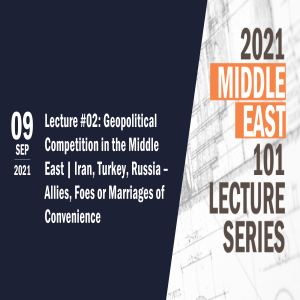
Friday Sep 10, 2021
Friday Sep 10, 2021
Lecture #02: Geopolitical Competition in the Middle East | Iran, Turkey, Russia – Allies, Foes or Marriages of Convenience by Dr Asif Shuja and Dr Serkan Yolacan [Thursday, 9 September 2021]
For more information on ME 101, click here:
https://mei.nus.edu.sg/event/me-101-lecture-series-2021/
![[Boots Off the Ground: Security in Transition in the Middle East and Beyond] Episode 18: Business and Human Rights: A Role for Private Security Companies?](https://pbcdn1.podbean.com/imglogo/ep-logo/pbblog4563756/BOTG-LOGOArtboard-1-Edited-700x461_300x300.png)
Wednesday Sep 15, 2021
Wednesday Sep 15, 2021
In this episode, risk consultant and policy specialist Mr John Bray, with his vast experience, discusses how private sector companies are evolving in their approach to security and human rights, particularly when operating in complex or conflict-affected environments.
This podcast series is presented by Dr Alessandro Arduino, Principal Research Fellow and Dr Ameem Lutfi, Research Fellow, at the Middle East Institute, National University of Singapore.
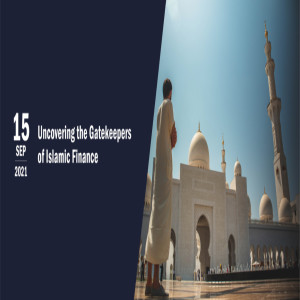
Monday Sep 20, 2021
Uncovering the Gatekeepers of Islamic Finance
Monday Sep 20, 2021
Monday Sep 20, 2021
In this webinar, co-organised by MEI-NUS and the Centre for Islamic Economics and Finance, Hamad Bin Khalifa University (CIEF-HBKU), two industry experts will explore the sociological dimensions of Islamic finance and its institutions. The session seeks to introduce the audience to:
- The role(s) of Sharia supervisory boards (SSBs) in approving – or disapproving – financial products at Islamic financial institutions;
- The religious, legal and business frameworks under which the SSBs operate;
- The extent of legal and religious authority that SSBs have in making a resolution.
In that regard, some questions that will outline the discussion include:
- How do SSBs at financial institutions wield authority and influence in approving (or disapproving) financial products?
- What are the main similarities and differences between SSBs in Southeast Asia and the Middle East?
- Is it true that SSBs in the Middle East are more stringent than those in Southeast Asia, as some Islamic finance insiders claim?
- What are the socio-religious factors that could influence the fatwas (Islamic legal opinion) issued by an SSB on a particular financial product?
This public talk was conducted online via Zoom on Wednesday, 15 September 2021, from 4pm to 5.30pm (Singapore Time) / 11am–12:30pm (Doha, Qatar time).
For more information about this event, click here: https://mei.nus.edu.sg/event/uncovering-the-gatekeepers-of-islamic-finance/
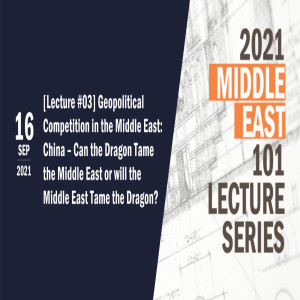
Tuesday Sep 21, 2021
Tuesday Sep 21, 2021
ME 101 Lecture #03: Geopolitical Competition in the Middle East | China – Can the Dragon Tame the Middle East or will the Middle East Tame the Dragon? by Dr Alessandro Arduino [Thursday, 16 September 2021]
For more information on ME 101, click here: https://mei.nus.edu.sg/event/me-101-lecture-series-2021/
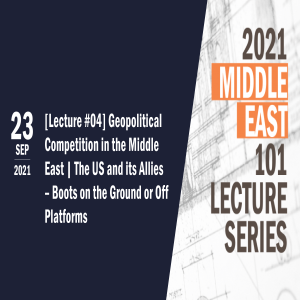
Sunday Sep 26, 2021
Lecture #04: The US and its Allies – Boots on the Ground or Off Platforms
Sunday Sep 26, 2021
Sunday Sep 26, 2021
Lecture #04: Geopolitical Competition in the Middle East | The US and its Allies – Boots on the Ground or Off Platforms [Thursday, 23 September 2021]
For more information on ME 101, click here: https://mei.nus.edu.sg/event/me-101-lecture-series-2021/
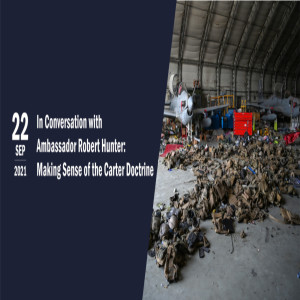
Monday Sep 27, 2021
Monday Sep 27, 2021
The chaotic American withdrawal from Afghanistan has added fuel to the already-raging debate on the US’ Middle East policy. With tens of thousands of troops still based in the Gulf, is America really moving towards the role of an offshore balancer? With the Biden administration’s pledge to end “forever wars”, the question has now shifted to the reliability of American commitments to its security allies in the Middle East and elsewhere.
The Carter Doctrine, proclaimed in 1980 – ironically, in response to the Soviet invasion of Afghanistan – promised the use of all means necessary, including force, to defend US interests in the Persian Gulf. Once a clarion call enunciating America’s stance against Soviet expansion, is the doctrine still relevant today? What lies at the core of America’s Persian Gulf interests? Most importantly, is the US rethinking its role there?
The Middle East Institute (NUS) is privileged to host Ambassador Robert Hunter, a top official in the Carter Administration who had a hand in crafting the doctrine itself, to tackle these and other questions on America’s evolving Middle East role.
This public talk was conducted online via Zoom on Wednesday, 22 September 2021, from 10.00am to 11.00am (Singapore Time) / 10.00pm–11.00pm (Washington, DC time).
For more information about this event, click here: https://mei.nus.edu.sg/event/in-conversation-with-ambassador-robert-hunter-making-sense-of-the-carter-doctrine/

